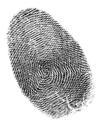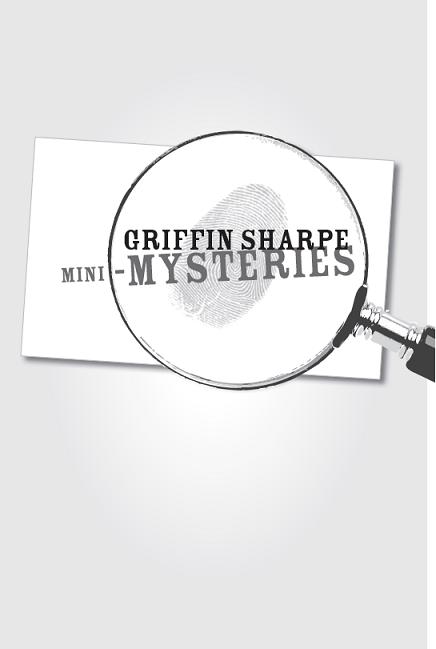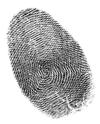No Place Like Holmes (20 page)

A few hours later Griffin Sharpe and Rupert Snodgrass, the greatest detectives in London, boarded a ship for Boston. The rumpled detective with his brown bowler led a beautiful hound on a leash and was accompanied by his nephew, a young man of unique abilities who carried an unusual walking stick and walked with a limp.
And as they walked up the gangplank, the city was left unprotected.
There were eyes watching them as they left the dock, the glittering, intelligent eyes of an old spider that was forever spinning its web.
Professor James Moriarty chuckled quietly. Then, as his steam-powered wheelchair rolled slowly away from the docks, he hummed a quiet tune. He felt happy, happier than he had in ages now that Sherlock Holmes had retired, and Snodgrass and Sharpe were out of the way.
His plan was working perfectly.

S
ee if you can answer the following questions without checking the book. If you can get them all right, you're on your way to becoming the next Griffin Sharpe!
1. When we first meet Griffin, we find out that he notices everything. What are some of the things he does when he feels nervous?
2. Many people think that Big Ben is the name of the Westminster Clock Tower. What does Big Ben actually refer to?
3. Griffin takes a cab ride to a place called the Limehouse Docks. When he enters a store filled with fireworks, the Chinese woman who runs it greets him using the Chinese word for hello. Can you remember what she said?
4. Rupert Snodgrass has made many inventions that are similar to devices that we have today. His Snodgrass Falsehood Detector and his Snodgrass Super Finder are things that exist in our modern age. What do we call them today?
5. In the Sherlock Holmes stories, Professor Moriarity is often referred to as the “Napoleon of Crime.” Why do you think he was called that? Bonus question: Nigel Moriarty referred to himself as La Salle. Do you know who he was?
6. In Victorian England, people hired horses and buggies to get from place to place. Today, we call cars that do the same thing
taxis
. What were they commonly called back then?
7. What was Griffin's father's job? How do you think it affected Griffin's beliefs?
8. Rupert Snodgrass is not a Christian. How do you think that affected Griffin? How do you think Christians should act around nonbelievers?
9. Griffin's faith in God is a big part of his life. How do you think it affected the way he looked at people who needed his help?
10. Some people believe that the Loch Ness Monster is real. In this story, it's actually a submarine. What was it about the submarine that made it look so much like a monster?
11. Sometimes we can be so concerned with ourselves and the way we look to others that we forget about other people's feelings. Do you think Sherlock Holmes should have told Rupert that he couldn't find his dog sooner? Why or why not?
12. Rupert Snodgrass named his robot Watts. Why do you think he chose that name?
13. For many years, Rupert Snodgrass hated living next door to Sherlock Holmes. Have you ever felt jealous of other people's talents or abilities?
14. God gives us different gifts. If you were to help Griffin and his uncle solve crimes, what do you think you'd have to offer? What part of their adventures would you look forward to the most?
Extra Credit
You can be a detective in your own home! Ask a brother, sister, or friend to play. Take turns hiding something somewhere, and then provide clues on how to find it. It's a great way to test your observation skills and see how well you match up to Griffin Sharpe!


THE COMPOSER'S WILL
A Griffin Sharpe Mini-Mystery
G
riffin Sharpe limped into the elegant living room, his walking stick making a small clicking noise as it tapped against the hardwood floor.
“Master Sharpe, so good of you to come!” said a young woman. Griffin smiled and shook her gloved hand.
Beatrice Thompson was pretty and about five years older than he was. Her eyes were large and brown, and she had an interesting brooch at her neck. Griffin saw that it was carved with the likeness of a honeybee.
“I like your brooch,” he said. “
Apis mellifera
, correct?”
The girl appeared confused. Griffin smiled and said, “It's the scientific name for
honeybee
.”
She brightened. “Oh yes,” she said, her hand going to the brooch. “My father gave it to me when I was young. He always said I was his little Bea.”
At the mention of her father, Griffin noticed her expression change. Her lip trembled, and her eyes filled with tears. Griffin felt sorry for her and offered her his clean handkerchief. Since the incident with Mrs. Dent, he'd found it useful to carry one when dealing with clients who were involved in a difficult or emotional case.
“Thank you,” she said, taking the handkerchief and dabbing at her eyes. “It's been hard not having my father around anymore.”
Griffin gave her a compassionate look. Then he said gently, “I understand that there was some trouble with his estate?”
The girl nodded. “Yes, you see, my father was a great composer and had saved quite a fortune over the years. After he died, there were a lot of arguments about who was entitled to his money because he didn't leave a will. My uncle feels he's entitled to all of it and, if he has his wishes, he would see me thrown out into the streets.”
“And where is your uncle now?”
“He's at a law office in London. If he can make his case to a barrister, he feels that he could have this house and my father's fortune handed to him within twenty-four hours!”
Griffin considered the situation. Then he asked, “Did your father express his dying wishes in any way? Did you have any conversations with him about what he wanted done with his money?”
“No, but he did give me this before he died,” she said, handing Griffin a piece of paper. “It was the last piece of music he ever composed. He wrote it on his deathbed, and it's a terrible shame that he never had the chance to finish it.”
Griffin saw that it was a piece of music titled “To Whom My Treasure Goes.” It was a very short piece of music. Griffin saw only three notes positioned on the musical staff.
A single chord
.
“Rest assured, Miss Beatrice,” Griffin said smiling. “The fortune is yours.”
How did Griffin know?
Turn to
Answers To Griffin Sharpe Mini-Mysteries
at the back of the book for the answer.

THE CASE OF THE TEXAS
SHARPSHOOTER
A Griffin Sharpe Mini-Mystery
G
riffin Sharpe and his uncle, the famous crime-fighting inventor Rupert Snodgrass, were attending a special event by invitation of the Queen. Ace McQuarrie, a gunslinger from Texas, was putting on a shooting exhibition, proving himself the greatest sharpshooter in the world.
Griffin had barely slept for a week because he was so excited to see the event. And when the day finally arrived, he was relieved to see that it had dawned crisp and clear without the slightest chance of rain.
After arriving at the palace, Griffin made his way to a row of reserved seats on the immense lawn. He and his uncle were dressed in their best clothes, and although his stiff new collar felt itchy, Griffin tried his best to ignore it. He glanced eagerly around the platform erected in front of him, hoping to get a glimpse of Mr. McQuarrie.
“They say he served with General Custer,” Griffin whispered to his uncle.
“Custard? He served custard?” came his uncle's confused reply.
Griffin snickered. Sometimes he forgot that his uncle was British and didn't know American celebrities.
“Ladies and gentlemen,” said a man in a fancy top hat. He waved his hands dramatically for silence as he walked onto the platform.
Griffin craned his neck to get a better view. He noticed that the stage was covered with stationary targets of various shapes and sizes. Some were large, and some were so small he wondered how anyone could be skillful enough to see them, let alone hit them with a bullet.
“It is my honor to introduce the fastest gun in the West. My friend Ace McQuarrie has bested the best, slapping leather with the quickest guns in Texas. What you're about to see is his most ambitious display of skill to date. Within the space of three seconds, he will destroy all of these targets on this stage, culminating with a perfect shot through the center of this card.”
The man held up an ace of spades and tucked it into the brim of his hat. “I assure you that I am not concerned for my personal safety, for my friend Ace has never missed.” Then he gulped theatrically and added for comedic effect, “Yet.”
Ripples of laughter scattered through the crowd. Griffin noticed that even the Queen was smiling.
“So it is without further ado I introduce . . . Ace McQuarrie!”
A man clad in flashy buckskin and a tall, white cowboy hat climbed up onto the stage. Griffin clapped with the others. The man waved his big hat in appreciation, his white teeth sparkling from underneath his flowing blond moustache.
After a gracious nod to the Queen, he took his position. Griffin saw his hand poised over the side of his six-shooter, ready to fire.
The man in the top hat took out his timer. Then, in a loud voice, he boomed, “Ready, Ace?”
The cowboy nodded.
“One . . . two . . . three . . . GO!”
There was a burst of gunfire. One by one the targets exploded or ricocheted as the bullets hit them. Griffin watched as a pan clanged, a bell rang, three plates exploded, and a thimble, almost too small to see, flew off of a fence railing.
And last, just as the stopwatch hit three seconds, the card from the man's top hat flew from his head and fluttered to the ground. The crowd shouted in amazement as the man held up the card, a perfect hole drilled through the center of the ace.
Ace McQuarrie doffed his hat to the thunderous applause. But Rupert Snodgrass noticed that his nephew was the only one who wasn't clapping.